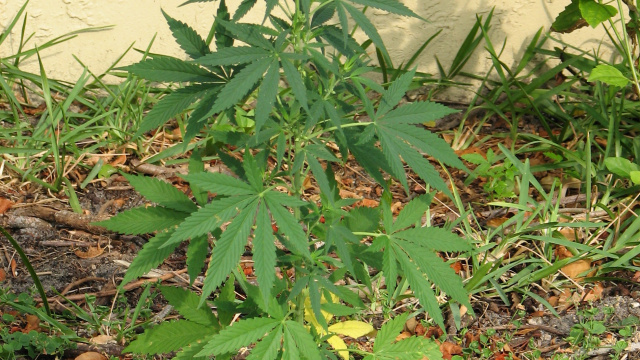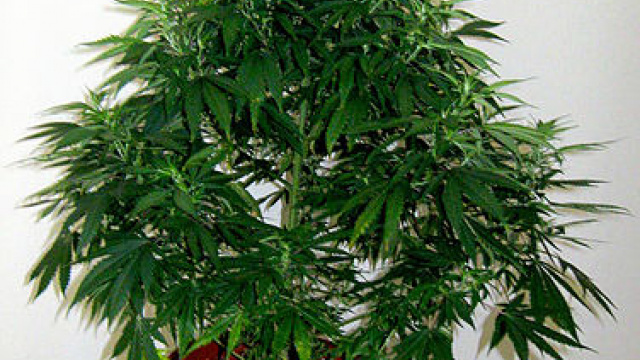 Americans like wars: the war on poverty — we lost that one when a bigger war came along. In 1971, while losing the war in Vietnam, President Nixon declared a war on drugs. The two wars got mixed together in some unpleasant ways. American soldiers began using drugs in Vietnam as a way of deadening the fear and loathing in fighting a war where civilians were indistinguishable from enemy soldiers.
Americans like wars: the war on poverty — we lost that one when a bigger war came along. In 1971, while losing the war in Vietnam, President Nixon declared a war on drugs. The two wars got mixed together in some unpleasant ways. American soldiers began using drugs in Vietnam as a way of deadening the fear and loathing in fighting a war where civilians were indistinguishable from enemy soldiers.
Back home, a youthful revolution developed: a rejection not just of the war and the draft that was taking so many young men to death or injury but of the humbug that had preceded it. The revolution rejected apple pie, stars-and-stripes morality with its undertones of bigotry and overtones of hypocrisy and embraced the emerging marijuana plant as a principal source of recreational pleasure.
The increased solidarity among young blacks and whites, many of whom had been part of the racial rebelliousness that brought about the civil rights acts of the sixties did not sit comfortably with the older ruling class still, particularly in the South, resisting the civil rights movement.
Exaggerated proclamations regarding the dangers of drugs, marijuana in particular, which did not match youthful experience, opened the generational split further. Birth control pills, newly invented and now widely distributed brought a new sense of sexual freedom to American youth leaving parents aghast. The new youth expressed itself through radically new musical preferences, incomprehensible or appalling to their parents. All this was accompanied by the expansion of marijuana use. The new wave of young men wearing long hair as a signal of alienation from the expectations of the adult world was the last straw.
The Establishment struck back, a counterrevolution against uppity youth, spotting marijuana use as a point of special vulnerability. They had a point. Marijuana is not good for you. Yes, cigarettes are much more likely to kill you. Alcohol is far worse. It can get you in all kinds of trouble as well as shortening your life. Alcohol and cigarettes are both more addictive but if you have been around, you know someone who has spent too much time in a marijuana haze. That cigarettes and alcohol, which are distributed with minor controls, are much worse does not make marijuana healthy.
Still, tens of millions used it, often as a substitute for alcohol, largely without ill effect. Widespread marijuana use was harmful but it also provided the temporary mind-altering sense of good feeling, relaxation and pleasure that alcohol could provide, without equivalent dangerous side effects.
Establishment anger makes for bad policy. Marijuana was scooped up in the reaction to much more dangerous substances, particularly heroin and other opiates. Draconian laws and enforcement policies were soon sending hundreds of thousands of marijuana users to prison. Still, a majority of Americans see marijuana use as relatively harmless. Half of America is making war against the other half with disastrous consequences. After nearly half a century of this failed war, isn’t it time we declared the one on marijuana over — won, lost or a draw?
Of course we can’t just throw in the towel. Drug use is a serious problem. We should continue to use the criminal justice system for narcotics, controlled pharmaceuticals and similar substances. However, we need to ease marijuana out of the criminal code and into medical models of attention.
A petition for an initiative to “legalize” marijuana is being circulated in Alaska, following movements under way in other states, but the issues involved in wrapping up the war on drugs are broad and require thoughtful consideration. The Legislature should take up the issue either directly or through the establishment of a commission with a short turnaround. In the meantime, lives are being ruined or damaged, marriages broken, parental care destroyed, lifetime creative employment capacities are being ruined, not so much by drugs as by the war on drugs. Continuing with the war on marijuana now is like staying in Afghanistan for another decade in the hope that we can declare victory.
This is the first of two columns by John Havelock about the war on drugs. The second, which focuses on the relationship of the drug war to the criminal justice system, will run Tuesday. Havelock is a former Alaska Attorney General and, later, while director of University Legal Studies, directed the state’s criminal code revision project.
Source: Anchorage Daily News (AK)
Author: John Havelock
Published: July 21, 2013
Copyright: 2013 The Anchorage Daily News
Contact: [email protected]



Leave a Reply